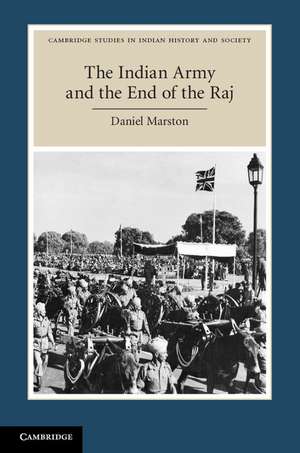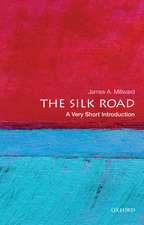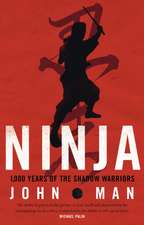The Indian Army and the End of the Raj: Cambridge Studies in Indian History and Society, cartea 23
Autor Daniel Marstonen Limba Engleză Paperback – 16 noi 2016
| Toate formatele și edițiile | Preț | Express |
|---|---|---|
| Paperback (1) | 322.51 lei 6-8 săpt. | |
| Cambridge University Press – 16 noi 2016 | 322.51 lei 6-8 săpt. | |
| Hardback (1) | 754.24 lei 6-8 săpt. | |
| Cambridge University Press – 23 apr 2014 | 754.24 lei 6-8 săpt. |
Din seria Cambridge Studies in Indian History and Society
-
 Preț: 284.98 lei
Preț: 284.98 lei -
 Preț: 403.33 lei
Preț: 403.33 lei -
 Preț: 207.91 lei
Preț: 207.91 lei -
 Preț: 319.99 lei
Preț: 319.99 lei -
 Preț: 323.00 lei
Preț: 323.00 lei -
 Preț: 293.17 lei
Preț: 293.17 lei -
 Preț: 299.44 lei
Preț: 299.44 lei -
 Preț: 376.82 lei
Preț: 376.82 lei -
 Preț: 284.01 lei
Preț: 284.01 lei -
 Preț: 308.88 lei
Preț: 308.88 lei -
 Preț: 285.93 lei
Preț: 285.93 lei -
 Preț: 209.65 lei
Preț: 209.65 lei -
 Preț: 320.55 lei
Preț: 320.55 lei -
 Preț: 286.30 lei
Preț: 286.30 lei -
 Preț: 284.56 lei
Preț: 284.56 lei -
 Preț: 418.39 lei
Preț: 418.39 lei -
 Preț: 390.64 lei
Preț: 390.64 lei -
 Preț: 417.07 lei
Preț: 417.07 lei -
 Preț: 427.94 lei
Preț: 427.94 lei -
 Preț: 367.96 lei
Preț: 367.96 lei -
 Preț: 349.20 lei
Preț: 349.20 lei - 11%
 Preț: 552.73 lei
Preț: 552.73 lei
Preț: 322.51 lei
Nou
Puncte Express: 484
Preț estimativ în valută:
61.71€ • 64.31$ • 51.10£
61.71€ • 64.31$ • 51.10£
Carte tipărită la comandă
Livrare economică 04-18 aprilie
Preluare comenzi: 021 569.72.76
Specificații
ISBN-13: 9781316635513
ISBN-10: 1316635511
Pagini: 400
Ilustrații: 12 b/w illus. 5 maps
Dimensiuni: 153 x 230 x 20 mm
Greutate: 0.53 kg
Editura: Cambridge University Press
Colecția Cambridge University Press
Seria Cambridge Studies in Indian History and Society
Locul publicării:New York, United States
ISBN-10: 1316635511
Pagini: 400
Ilustrații: 12 b/w illus. 5 maps
Dimensiuni: 153 x 230 x 20 mm
Greutate: 0.53 kg
Editura: Cambridge University Press
Colecția Cambridge University Press
Seria Cambridge Studies in Indian History and Society
Locul publicării:New York, United States
Cuprins
Introduction; 1. The bedrock of the Raj: the Indian Army before 1939; 2. The performance of the Indian army in the Second World War; 3. Question of loyalty? The Indian National Army and the Royal Indian Navy mutiny; 4. The Indian Army in French Indo-China and the Netherlands East Indies 1945–6; 5. 1946, the year of difficulty: internal security and the rise of communal violence; 6. Demobilisation, nationalisation and division of the army in the midst of chaos; 7. 1947: the year of reckoning and the end of the Raj; Conclusion: the end of the British Indian Army; Bibliography; Index.
Recenzii
'The 'Transfer of Power' in India has often been written about in terms of politics and personalities, but lingering largely unnoticed in the background has been a crucial, unasked question: why did the Indian Army, under stresses as powerful as any army in modern history has experienced, not simply disintegrate, throwing the subcontinent into total chaos? Mixing massive archival research, interviews with surviving participants, British, Indian and Pakistani, and a profound empathy for the subject, Marston answers that question in a book that will certainly readjust perspectives on the end of the Raj, and be essential reading for any serious student of that epochal event.' Raymond Callahan, FRHS, Professor Emeritus, University of Delaware
'Daniel Marston has given us in this volume some deep insights into how the former British Indian Army went through a transformation to become the truly national armies of two independent states whose foreign and defence policies were very different to those of their former Imperial master. This volume is built on prodigious, accurate documentary work and hundreds of interviews with surviving British, Indian and Pakistani soldiers of those times. It is a complex, fascinating and well-told story, and reinforces in the mind of the reader the value of the old British model of military-political relations. At the same time, it demonstrates the importance of the liberal post-imperial policy which permitted and encouraged the transfer of power while still retaining a high military capability which was to be put to the test all too soon.' Robert O'Neill, Chichele Professor of the History of War, All Souls College, University of Oxford
'Daniel Marston's superb history shows how the Indian Army stayed cohesive and effective in the face of external enemies and the near-collapse of the colonial state. It is a story with valuable lessons for policymakers looking to understand what keeps armies together - and out of politics - in democratic transitions.' Steven I. Wilkinson, Nilekani Professor of India and South Asian Studies and Professor of Political Science and International Affairs, Yale University, Connecticut
'Marston's work is eminently readable and presents a very clear analysis of what strengths the Army of the Raj was able to draw upon to overcome civil and political disorder. His use of a myriad of primary sources further reinforces his thesis and position. His is not a study of the individual soldier but their reminisces and that of their peers and commanders are the basis upon which the work is built … Marston's book is an outstanding work and deserves the closest of review.' Chris Buckham, War History Online (warhistoryonline.com)
'Daniel Marston has given us in this volume some deep insights into how the former British Indian Army went through a transformation to become the truly national armies of two independent states whose foreign and defence policies were very different to those of their former Imperial master. This volume is built on prodigious, accurate documentary work and hundreds of interviews with surviving British, Indian and Pakistani soldiers of those times. It is a complex, fascinating and well-told story, and reinforces in the mind of the reader the value of the old British model of military-political relations. At the same time, it demonstrates the importance of the liberal post-imperial policy which permitted and encouraged the transfer of power while still retaining a high military capability which was to be put to the test all too soon.' Robert O'Neill, Chichele Professor of the History of War, All Souls College, University of Oxford
'Daniel Marston's superb history shows how the Indian Army stayed cohesive and effective in the face of external enemies and the near-collapse of the colonial state. It is a story with valuable lessons for policymakers looking to understand what keeps armies together - and out of politics - in democratic transitions.' Steven I. Wilkinson, Nilekani Professor of India and South Asian Studies and Professor of Political Science and International Affairs, Yale University, Connecticut
'Marston's work is eminently readable and presents a very clear analysis of what strengths the Army of the Raj was able to draw upon to overcome civil and political disorder. His use of a myriad of primary sources further reinforces his thesis and position. His is not a study of the individual soldier but their reminisces and that of their peers and commanders are the basis upon which the work is built … Marston's book is an outstanding work and deserves the closest of review.' Chris Buckham, War History Online (warhistoryonline.com)
Notă biografică
Descriere
A unique examination of the role of the Indian army in post-World War II India during the run-up to Partition.














